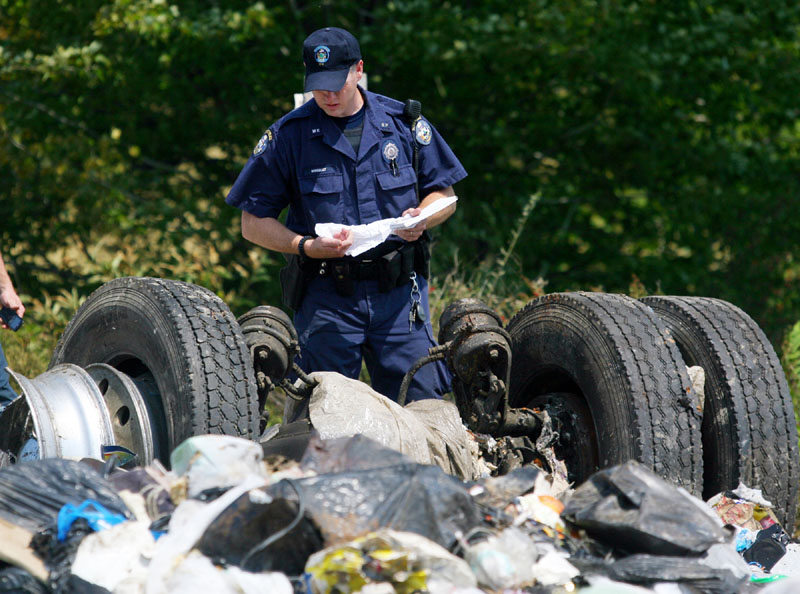PORTLAND — Trains seldom collide with automobiles in Maine.
According to data from the Federal Railroad Administration, there have been only a few so-called “highway-rail” collisions in Maine each year for the last 10 years.
Until the accident Monday in North Berwick, no one had died in a highway-rail collision in Maine since 2003.
And federal data shows there have been no fatalities involving Amtrak trains at railroad crossings in Maine since at least 2001.
“We don’t have as many trains as in other states, nor do we have trains that operate as fast as in some parts of the country,” said Fred Hirsch, Maine state coordinator for train safety group Operation Lifesaver Inc.
Maine also has fewer passenger and commuter trains, which tend to be faster than freight trains, than many other states, say experts. And the trains in Maine generally don’t travel through heavily congested urban areas, as do trains in cities like Boston, New York and Chicago.
Data from the Federal Railroad Administration, a division of the Department of Transportation, shows there are some 227,000 highway railroad crossings in the United States, and 1,666 in Maine.
The agency does not have data on the number of crossings in Amtrak’s system because the carrier operates primarily on tracks owned by freight carriers, said spokesperson Warren Flatau.
In 2010, there were 2,013 accidents nationwide between vehicles and trains at railroad crossings, causing 262 deaths.
That’s down from in 2001, when there were 3,237 accidents and 421 deaths. The all-time high for accidents was in 1978, when trains were involved in 13,557 collisions with vehicles.
A fact sheet from the Federal Railroad Administration said more than half of collisions at railroad crossings happen when the warning systems — the flashing lights and gates — are working properly.
Nearly one-quarter of collisions involve a motor vehicle striking the side of a train that is already crossing the street.
Warren Flatau, spokesman for the Federal Railroad Administration, said impatient drivers also sometimes weave around the protective gates, and trucks can get hung up on the tracks. Sometimes, a car knocks another onto the tracks.
“The majority of events involve errors in judgment by (automobile) drivers,” he said.
Copy the Story Link
Send questions/comments to the editors.



Success. Please wait for the page to reload. If the page does not reload within 5 seconds, please refresh the page.
Enter your email and password to access comments.
Hi, to comment on stories you must . This profile is in addition to your subscription and website login.
Already have a commenting profile? .
Invalid username/password.
Please check your email to confirm and complete your registration.
Only subscribers are eligible to post comments. Please subscribe or login first for digital access. Here’s why.
Use the form below to reset your password. When you've submitted your account email, we will send an email with a reset code.